Hopes are high that a consignment of Irish cattle will be purchased for Algeria in the coming weeks after the most important door into the country was opened.
There were three doors to open to get breeding, growing and finished cattle into Algeria and the third door was pushed open this week as the herd health cert for finished cattle got the green light from Algerian authorities.
Visit to Salah Boukhair, Director of Taiba de Viandes, SARL.
The impact of the move as an avenue for cattle or meat exports is yet unknown, but it is a hurdle that had to be crossed to have any hope in the market.
Given Algeria’s proximity to Spain, it could also open a back door for forward Spanish cattle originally sourced in Ireland into Algeria. Up to now, most Algerian cattle have been sourced in France and Spain.
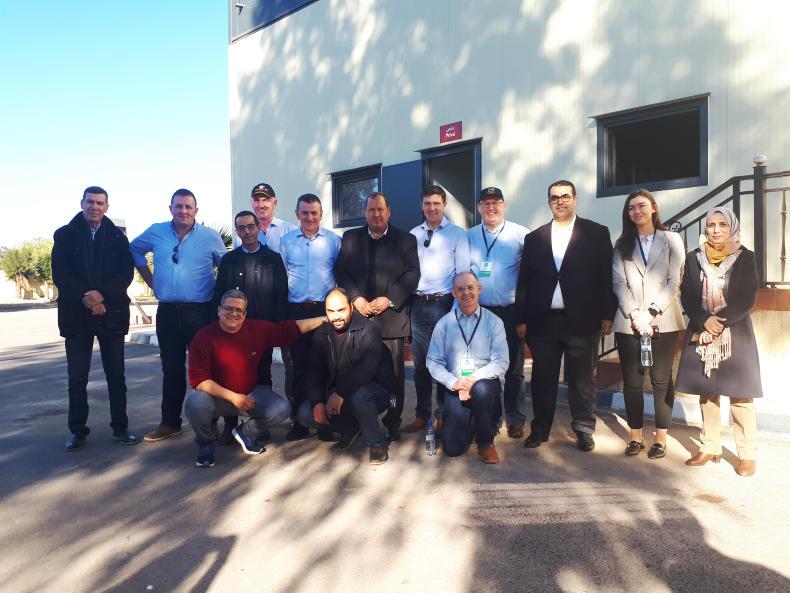
The Bord Bia trade mission group on a visit to Salah Boukhiar at his factory.
Next week, buyers from Algeria who already visited Ireland in November 2019 will return.
This time the plan will be to select stock, purchase and bring them back to Algeria. They will be looking for high-quality forward bulls, ideally pure breeds such as Limousin or Charolais. Algerian stock traders are reportedly sourcing bulls costing from €3.15 to €3.50/kg.
The deficit and demand for meat and milk in Algeria has to be seen to be believed. Local shops on side streets can’t source drinking milk. Supermarkets are rare entities, but have other options to allow them add value such as UHT and skim milk powder options.
State subsidies are reducing the cost of the raw materials to Algerian consumers, but a growing population, 42m people, heading for 52m in 10 years’ time, is driving demand.
The Department of Agriculture, Bord Bia and the Irish Livestock Exporters Association all welcomed the move as positive.
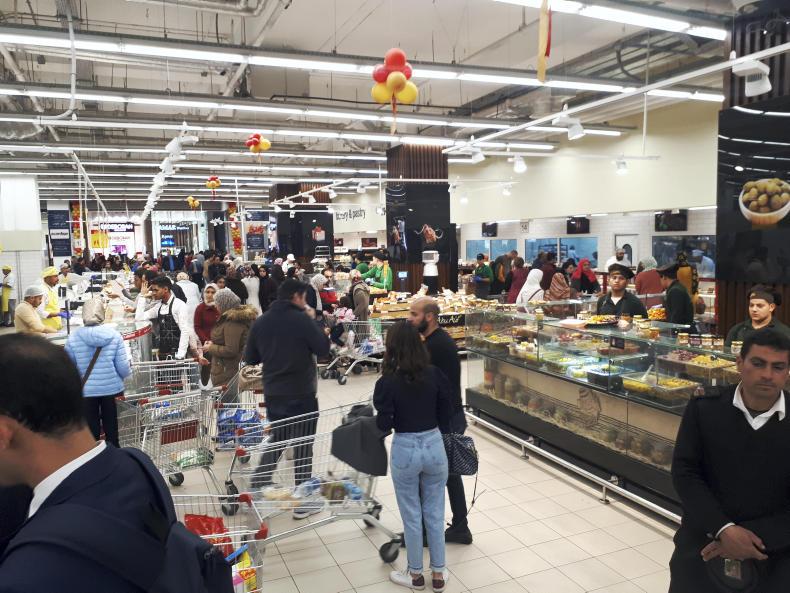
Shoppers jammed into the Cairo Carrefour shopping centre at 9pm at night queing for cheese and vegetables. The Bord Bia/Department of Agriculture Trade Mission left Algeria for Egypt on Wednesday.
Algeria pushing for more Irish cheddar
Irish cheddar is the order of the day from Algerian buyers following a speed dating session with Irish milk processors and Algerian counterparts in Algiers on Tuesday.
Dairygold, Glanbia, Lakeland, Ornua, Tipperary Co-op, Dansko, Glenstal Foods and CP Ingredients all met Algerian companies looking to source Irish product. Most of the Irish processors reported strong demand for cheddar.
Cheddar and soft cheeses are in strong demand from Algerian consumers.
Algerian milk processors make various different forms of cheese and include varying amounts of cheddar and butter in products. The more dairy ingredient included, the higher the price of the product at the shop shelf.
This Algerian market could help relieve some of the potential pressure on the Irish cheddar market as a result of Brexit.
However, you can sell all the dairy product you like in Algeria but getting paid for it and trying to differentiate your product from the market are two of the biggest challenges.
Having said that, total Irish dairy exports to Algeria reached over €54m in 2019.
On this Bord Bia-led trade mission, we saw three or four variations of liquid milk in one of the supermarkets.
Most of it is made from dairy powders imported into Algeria with local water added.
The Algerians, similar to the Irish, like to drink milk, with consumption surprisingly up around 120l per head (Ireland is 140l/head).

French-bred Limousin, Charolais, and Parthanaise young bulls in Algeria.
State subsidies drive consumption
There is a big push from the Algerian government to get more dairy in the diet of young people, so dairy powder imports are subsidised to keep retail prices down.
It’s a sort of a social calming effect – cheap food, cheap cigarettes and, even more importantly, cheap diesel and petrol. Petrol and diesel retail at between 20c/l to 25c/l, compared to €1.30/l in Ireland.
In theory, Ireland could sell plenty of skim milk powder into Algeria but it’s a cheap base product with little room for adding value. Irish companies could and have set up the best of deals, but as soon as commodity product drops in price, if you don’t match it you are out.
The long-term goal of Algeria is self-sufficiency, with the primary aim to feed the population at affordable prices.
The national dairy body, The National Milk Inter-profession Office (ONIL), oversees farm subsidies.
Its role is to regulate the importation of subsidised raw materials. It also works to improve the domestic dairy industry.
So how does it work for an Irish company looking to get product into Algeria?
Let’s say the product, maybe skim powder or whole milk powder, reaches Algeria at €3,000/t.
Essentially, ONIL subsidises this to the tune of €1,000/t, allowing the company sell the product at €2,000/t so the consumer can purchase milk in the shops at less than the price of water.
This ONIL contract is offered every couple of months and minimum contracts are for 500t, so only big processors can go for that.
The other option to get in on the drinking milk market is the UHT or reconsituted powder products.
Long term, you would imagine the Algerian government’s national balance sheet will not be able to continue to subsidise the purchasing of milk powder, and initiatives to get milk produced in Algeria will have to be subsidised.
In brief
In 2019 Irish dairy exports to Algeria reached €54m. Almost 10,000t of cheese were sold in 2018 valued at close to €35m.Kerrygold Cheddar and butter on sale in a supermarket is priced at €11/kg.State subsidies reduce the cost of foods and essentials to Algerian consumers, but a growing population is driving demand. A herd health cert for finished cattle finally got the green light from Algerian authorities this week.
Read more
Algeria: a market pushing for more dairy in diets
Population growth driving Bord Bia Algeria trade mission
Cert signed for export of cattle for slaughter from Ireland to Algeria
Hopes are high that a consignment of Irish cattle will be purchased for Algeria in the coming weeks after the most important door into the country was opened.
There were three doors to open to get breeding, growing and finished cattle into Algeria and the third door was pushed open this week as the herd health cert for finished cattle got the green light from Algerian authorities.
Visit to Salah Boukhair, Director of Taiba de Viandes, SARL.
The impact of the move as an avenue for cattle or meat exports is yet unknown, but it is a hurdle that had to be crossed to have any hope in the market.
Given Algeria’s proximity to Spain, it could also open a back door for forward Spanish cattle originally sourced in Ireland into Algeria. Up to now, most Algerian cattle have been sourced in France and Spain.

The Bord Bia trade mission group on a visit to Salah Boukhiar at his factory.
Next week, buyers from Algeria who already visited Ireland in November 2019 will return.
This time the plan will be to select stock, purchase and bring them back to Algeria. They will be looking for high-quality forward bulls, ideally pure breeds such as Limousin or Charolais. Algerian stock traders are reportedly sourcing bulls costing from €3.15 to €3.50/kg.
The deficit and demand for meat and milk in Algeria has to be seen to be believed. Local shops on side streets can’t source drinking milk. Supermarkets are rare entities, but have other options to allow them add value such as UHT and skim milk powder options.
State subsidies are reducing the cost of the raw materials to Algerian consumers, but a growing population, 42m people, heading for 52m in 10 years’ time, is driving demand.
The Department of Agriculture, Bord Bia and the Irish Livestock Exporters Association all welcomed the move as positive.

Shoppers jammed into the Cairo Carrefour shopping centre at 9pm at night queing for cheese and vegetables. The Bord Bia/Department of Agriculture Trade Mission left Algeria for Egypt on Wednesday.
Algeria pushing for more Irish cheddar
Irish cheddar is the order of the day from Algerian buyers following a speed dating session with Irish milk processors and Algerian counterparts in Algiers on Tuesday.
Dairygold, Glanbia, Lakeland, Ornua, Tipperary Co-op, Dansko, Glenstal Foods and CP Ingredients all met Algerian companies looking to source Irish product. Most of the Irish processors reported strong demand for cheddar.
Cheddar and soft cheeses are in strong demand from Algerian consumers.
Algerian milk processors make various different forms of cheese and include varying amounts of cheddar and butter in products. The more dairy ingredient included, the higher the price of the product at the shop shelf.
This Algerian market could help relieve some of the potential pressure on the Irish cheddar market as a result of Brexit.
However, you can sell all the dairy product you like in Algeria but getting paid for it and trying to differentiate your product from the market are two of the biggest challenges.
Having said that, total Irish dairy exports to Algeria reached over €54m in 2019.
On this Bord Bia-led trade mission, we saw three or four variations of liquid milk in one of the supermarkets.
Most of it is made from dairy powders imported into Algeria with local water added.
The Algerians, similar to the Irish, like to drink milk, with consumption surprisingly up around 120l per head (Ireland is 140l/head).

French-bred Limousin, Charolais, and Parthanaise young bulls in Algeria.
State subsidies drive consumption
There is a big push from the Algerian government to get more dairy in the diet of young people, so dairy powder imports are subsidised to keep retail prices down.
It’s a sort of a social calming effect – cheap food, cheap cigarettes and, even more importantly, cheap diesel and petrol. Petrol and diesel retail at between 20c/l to 25c/l, compared to €1.30/l in Ireland.
In theory, Ireland could sell plenty of skim milk powder into Algeria but it’s a cheap base product with little room for adding value. Irish companies could and have set up the best of deals, but as soon as commodity product drops in price, if you don’t match it you are out.
The long-term goal of Algeria is self-sufficiency, with the primary aim to feed the population at affordable prices.
The national dairy body, The National Milk Inter-profession Office (ONIL), oversees farm subsidies.
Its role is to regulate the importation of subsidised raw materials. It also works to improve the domestic dairy industry.
So how does it work for an Irish company looking to get product into Algeria?
Let’s say the product, maybe skim powder or whole milk powder, reaches Algeria at €3,000/t.
Essentially, ONIL subsidises this to the tune of €1,000/t, allowing the company sell the product at €2,000/t so the consumer can purchase milk in the shops at less than the price of water.
This ONIL contract is offered every couple of months and minimum contracts are for 500t, so only big processors can go for that.
The other option to get in on the drinking milk market is the UHT or reconsituted powder products.
Long term, you would imagine the Algerian government’s national balance sheet will not be able to continue to subsidise the purchasing of milk powder, and initiatives to get milk produced in Algeria will have to be subsidised.
In brief
In 2019 Irish dairy exports to Algeria reached €54m. Almost 10,000t of cheese were sold in 2018 valued at close to €35m.Kerrygold Cheddar and butter on sale in a supermarket is priced at €11/kg.State subsidies reduce the cost of foods and essentials to Algerian consumers, but a growing population is driving demand. A herd health cert for finished cattle finally got the green light from Algerian authorities this week.
Read more
Algeria: a market pushing for more dairy in diets
Population growth driving Bord Bia Algeria trade mission
Cert signed for export of cattle for slaughter from Ireland to Algeria








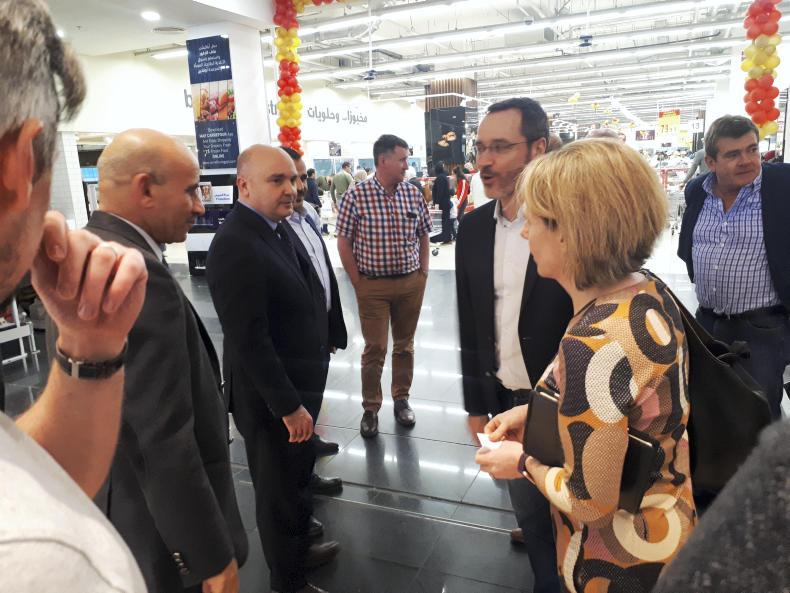
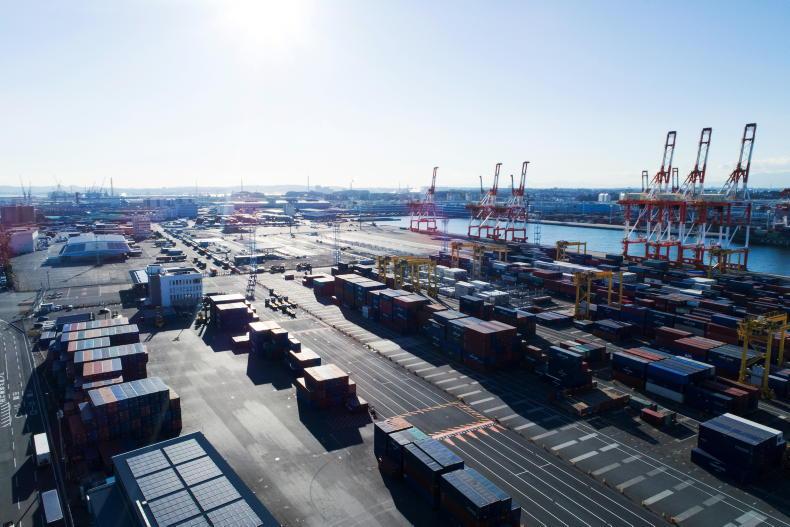

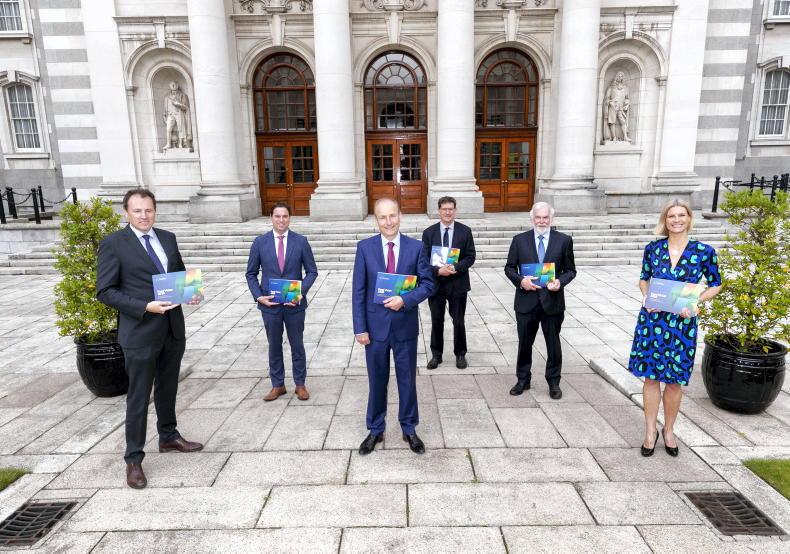
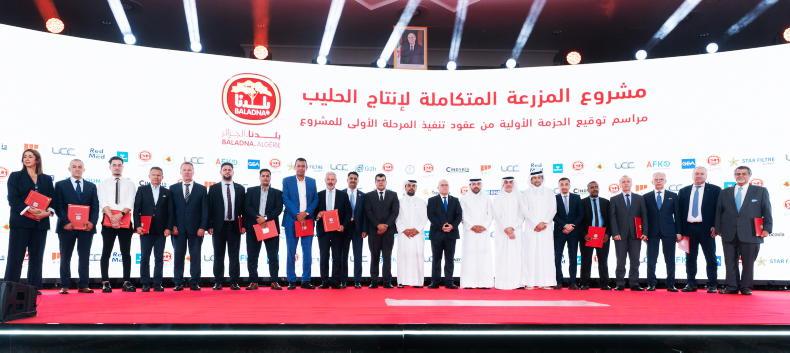

SHARING OPTIONS